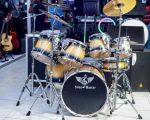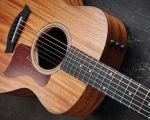How to Pick the Best Brass Instruments: A Guide for Musicians
1. Understanding Brass Instruments
Brass instruments are among the oldest and most distinctive in the world of music. As a musician and enthusiast myself, I’ve spent countless hours learning about and playing various brass instruments, from the shimmering trumpet to the resonant tuba. Each instrument has its own unique sound, feel, and technique, making the choice of the right brass instrument a personal and important decision.
Whether you’re a beginner looking to start your journey in brass music or an experienced player wanting to upgrade your gear, picking the best brass instrument is crucial. In this article, I’ll guide you through the key factors to consider when choosing the right brass instrument for your musical needs. By the end, you’ll feel confident in making an informed decision.
2. Factors to Consider When Choosing a Brass Instrument
When selecting a brass instrument, there are several factors to keep in mind that can greatly impact your playing experience. These factors include sound quality, comfort, durability, and personal preference. Over the years, I’ve learned that finding the right fit for your playing style and musical genre is just as important as the instrument’s technical features. Let’s explore these elements in more detail.
2.1 Sound Quality
Sound quality is perhaps the most important factor when choosing a brass instrument. Each brass instrument has a unique sound that can vary based on the material it’s made from and its construction. For example, a trumpet made from brass will produce a sharp, bright sound, while a trombone, often made of yellow brass or gold brass, offers a warmer, more mellow tone.
When I was choosing my trumpet, I spent a considerable amount of time listening to different models in various settings, paying attention to how each instrument resonated. The tone should align with your playing style and the type of music you’re most interested in. If you're into jazz, for instance, you might prefer a trumpet with a slightly darker tone, whereas a concert player might want something with more clarity and brilliance.
2.2 Comfort and Fit
Comfort is crucial for playing any brass instrument, and it can be a game-changer in how easily you can produce sound and manage your technique. I quickly learned that an instrument that doesn’t fit comfortably can lead to poor posture, tension, and even injury in the long run. When choosing your brass instrument, consider factors like the size of the mouthpiece, the weight of the instrument, and the overall ergonomics.
For instance, if you’re looking at a trumpet, make sure that the valve triggers are easy to press, and that the overall weight feels manageable for you. Similarly, with a tuba, the size of the bell and the tubing should align with your playing style. If you feel any discomfort or strain when trying out the instrument, it might not be the best fit for you.
2.3 Durability and Maintenance
Brass instruments are built to last, but some are more durable than others. The durability of an instrument depends largely on its construction and the materials used. High-quality brass instruments are often crafted with precision and attention to detail, ensuring they will withstand years of playing. However, the material will also influence how much maintenance the instrument requires.
When I first bought my trombone, I was careful to choose one with a strong build and a lacquer finish to protect it from corrosion. The higher-end models may cost more upfront but often require less maintenance over time. Consider instruments that come with protective cases, cleaning kits, and warranties to extend their longevity and maintain their sound quality.
2.4 Personal Preference and Genre
Your personal musical style and genre preference also play a role in selecting the right brass instrument. For example, if you’re passionate about classical music, the French horn or the tuba might be more suited to your taste, while a trumpet or saxophone might be ideal for jazz or contemporary music. Personally, I gravitated toward the trumpet for its versatility in different genres, from big band jazz to orchestral performances.
Think about the kind of music you’re most excited to play. Will you be part of a marching band, a jazz ensemble, or a symphony orchestra? The specific demands of your musical endeavors will guide you toward the best brass instrument for your needs.
3. Exploring Popular Brass Instruments
3.1 Trumpet
The trumpet is one of the most iconic and widely recognized brass instruments. It is known for its bright, piercing sound that cuts through the mix, making it a staple in orchestras, jazz bands, and even marching bands. I found the trumpet to be both challenging and rewarding, with its combination of precision and versatility. The key to finding the best trumpet is choosing one with smooth valves, a well-crafted bell, and the right mouthpiece for your embouchure.
3.2 Trombone
The trombone has a unique sliding mechanism that allows players to produce different notes with a smooth, sliding motion. This makes it stand out from other brass instruments. I’ve always appreciated the trombone’s rich sound, which can range from mellow to bold, depending on the player’s technique. When choosing a trombone, pay attention to the slide quality and material (nickel-plated or brass) as these elements influence both sound and ease of use.
3.3 French Horn
The French horn offers one of the most beautiful and complex sounds among brass instruments. It’s used primarily in orchestral settings and is known for its deep, rich tones. The French horn is particularly suited for musicians with advanced skills, as its embouchure and finger placement are more demanding than other instruments. Choosing the best French horn involves selecting an instrument with smooth valves and good pitch accuracy, which are crucial for a successful performance.
3.4 Tuba
The tuba, the largest of the brass family, plays an essential role in creating the bass foundation in orchestras and brass bands. It’s known for its deep, resonant sound. Selecting the best tuba requires paying attention to factors like its size, weight, and the tubing material. I’ve always admired the tuba’s powerful presence in a performance, and finding the right fit can truly elevate your playing experience.
4. Testing Out Brass Instruments Before Buying
When I decided to upgrade my brass instrument, one of the most important steps I took was testing several instruments before making my final choice. No matter how much research you do, playing the instrument yourself is key. Most music stores and online retailers offer the option to try out the instruments in person. I recommend visiting a local music shop or showroom where you can try out different models to see which one feels right.
During your test session, consider the overall feel of the instrument, the sound it produces, and how easy it is to maneuver. Don’t hesitate to ask the staff for advice, as they can provide valuable insights into the best options based on your needs and skill level. Don’t rush the decision—take your time to ensure you pick an instrument that matches your musical aspirations.








